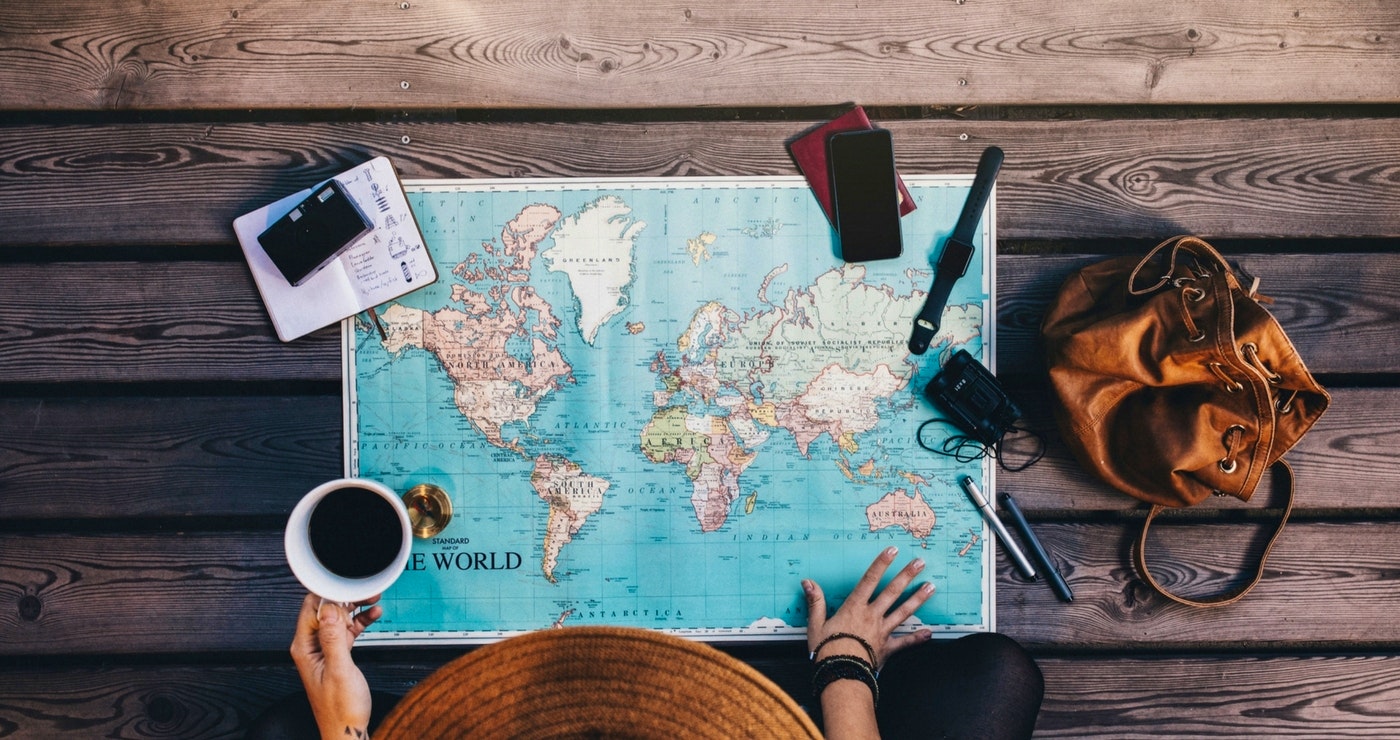 |
| Exploring the World on a Budget: Money-Saving Tips During Your Travels (Pics: travelground.com) |
NICETRAVELERS.CYOU - Traveling the world is a dream for many, but the perceived high costs often deter people from turning that dream into reality.
However, with careful planning and a bit of creativity, it's possible to explore new destinations and cultures without breaking the bank.
In this comprehensive guide, we'll delve into various money-saving tips and strategies for traveling on a budget, allowing you to make the most of your adventures while keeping your expenses in check.
1. Plan Ahead and Set a Budget
The first step to traveling on a budget is to plan ahead and establish a realistic budget for your trip. Determine how much you can afford to spend on transportation, accommodation, food, activities, and other expenses.
Research the cost of living in your destination country or countries, and use online budget calculators to estimate your overall expenses.
2. Be Flexible with Your Travel Dates
Flexibility is key when it comes to finding the best deals on transportation and accommodation. Consider traveling during off-peak seasons or shoulder seasons when prices are typically lower.
Use fare comparison websites and booking apps to compare prices across different airlines and accommodation options, and be open to adjusting your travel dates to snag the best deals.
3. Use Budget Airlines and Alternative Transportation Options
Opting for budget airlines or alternative transportation options, such as trains, buses, or shared rides, can help you save significantly on travel costs.
While budget airlines may have fewer amenities, they often offer discounted fares that are much lower than those of traditional carriers.
Similarly, taking trains or buses can be a cost-effective way to travel between cities or countries, especially in Europe and Asia where extensive rail and bus networks exist.
4. Stay in Budget Accommodations
Accommodation expenses can quickly add up, but there are plenty of budget-friendly options available for travelers. Consider staying in hostels, guesthouses, or budget hotels instead of luxury resorts or boutique hotels.
You can also explore alternative lodging options such as vacation rentals, homestays, or couchsurfing, which may offer more affordable rates or even free accommodation in exchange for cultural exchange or assistance with household chores.
5. Cook Your Own Meals
Eating out at restaurants for every meal can be costly, especially in touristy areas. To save money on food expenses, consider cooking your own meals whenever possible.
Book accommodations with kitchen facilities so you can prepare simple meals using local ingredients bought from markets or grocery stores.
Not only is cooking your own meals more budget-friendly, but it also allows you to experience the local cuisine in a more authentic way.
6. Take Advantage of Free Activities and Attractions
Many destinations offer a wealth of free or low-cost activities and attractions that allow you to experience the local culture and attractions without spending a fortune.
Take advantage of free walking tours, visit public parks and gardens, explore local markets, and attend cultural events or festivals.
Research online or ask locals for recommendations on budget-friendly activities that align with your interests.
7. Travel Like a Local
Embracing the local lifestyle and customs can help you save money and enhance your travel experience.
Use public transportation instead of taxis or rental cars, shop at local markets or grocery stores instead of touristy shops, and avoid eating at restaurants located in popular tourist areas.
Engage with locals, learn a few basic phrases in the local language, and immerse yourself in the local culture to gain a deeper appreciation for your destination while staying within your budget.
8. Limit Your Souvenir Spending
While it's tempting to splurge on souvenirs and mementos during your travels, keep in mind that these expenses can quickly add up.
Be selective with your souvenir purchases and opt for small, meaningful items that won't break the bank.
Alternatively, consider collecting free or inexpensive souvenirs such as postcards, stamps, or local currency coins, which serve as memorable reminders of your journey without costing a fortune.
9. Monitor Your Expenses and Adjust Your Budget Accordingly
Throughout your travels, keep track of your expenses and monitor your spending to ensure that you stay within your budget.
Use budgeting apps or spreadsheets to record your expenditures, and regularly review your budget to identify areas where you can cut back or reallocate funds.
Be prepared to adjust your itinerary or spending habits as needed to avoid overspending and stay on track financially.
10. Be Mindful of Hidden Fees and Charges
When traveling on a budget, it's important to be vigilant about hidden fees and charges that can unexpectedly inflate your expenses.
Pay attention to additional costs such as luggage fees, resort fees, ATM withdrawal fees, and foreign transaction fees, which can quickly eat into your travel budget if left unchecked. Whenever possible, choose budget-friendly options that offer transparent pricing and minimal extra charges.
Conclusion
Traveling the world on a budget is not only achievable but also immensely rewarding. By following these money-saving tips and strategies, you can stretch your travel budget further and embark on memorable adventures without sacrificing comfort or experiences.
Whether you're backpacking through Southeast Asia, exploring Europe on a budget, or road-tripping across your own country, remember that with careful planning and a frugal mindset, the world truly becomes accessible to anyone, regardless of their financial means.


.jpeg)



0 Comments